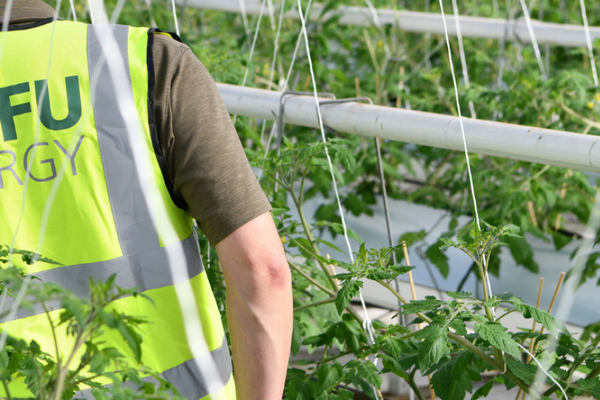Understanding the Climate Change Levy (CCL) is crucial for businesses aiming to manage energy costs and enhance sustainability. This tax on energy consumption impacts sectors like horticulture, but relief schemes, such as the NFU CCL Scheme, can offer significant savings. Steven Leil, a Compliance Scheme Manager, will explore the CCL, its connection to Combined Heat and Power Quality Assurance (CHPQA), and how NFU Energy can assist businesses in maximizing tax savings while ensuring compliance.
CCL and how it impacts businesses
CCL is a tax imposed on businesses for the energy they consume, to encourage energy efficiency and lower carbon emissions. For businesses in energy-intensive sectors like horticulture, this levy can add substantial costs to their operations. However, businesses can reduce these costs significantly through CCL relief schemes. For example, under the NFU CCL Scheme, horticulture members can claim up to 92% relief on electricity and 88% on gas, providing huge savings.
How CCL and CHPQA are connected, and why CHPQA is important for businesses with CHP units
CCL and the CHPQA scheme are closely linked. CHPQA certification is essential for businesses operating Combined Heat and Power (CHP) units to qualify for 100% relief on the gas they use in their CHP systems. Without this certification, businesses would be required to pay the full CCL on the gas, missing out on substantial tax savings. CHPQA ensures that CHP units meet specific efficiency and environmental standards, which is why it's so important for businesses to participate. Given that CHP plants consume large amounts of gas, obtaining CCL relief through CHPQA can result in significant savings.

Other tax considerations for CHP operators
For larger plants, particularly those over 2MWe, there is an additional tax known as the Carbon Price Support (CPS) tax. If your plant generates electricity from fossil fuels, you are liable for CPS tax in addition to the CCL. However, NFU Energy provides support here too. They calculate CPS tax obligations and handle all reporting requirements with HMRC, ensuring businesses remain compliant while minimizing their tax exposure.
NFU Energy helps with CCL and CHPQA compliance
NFU offers a comprehensive service to guide businesses through every stage of CCL and CHPQA compliance. From securing CCL relief through climate change agreements to navigating the complex CHPQA process and managing CPS tax reporting, NFU Energy takes care of the heavy lifting. This allows businesses to focus on their day-to-day operations while knowing that they're optimizing their tax savings and remaining fully compliant.
Source: NFU Energy
